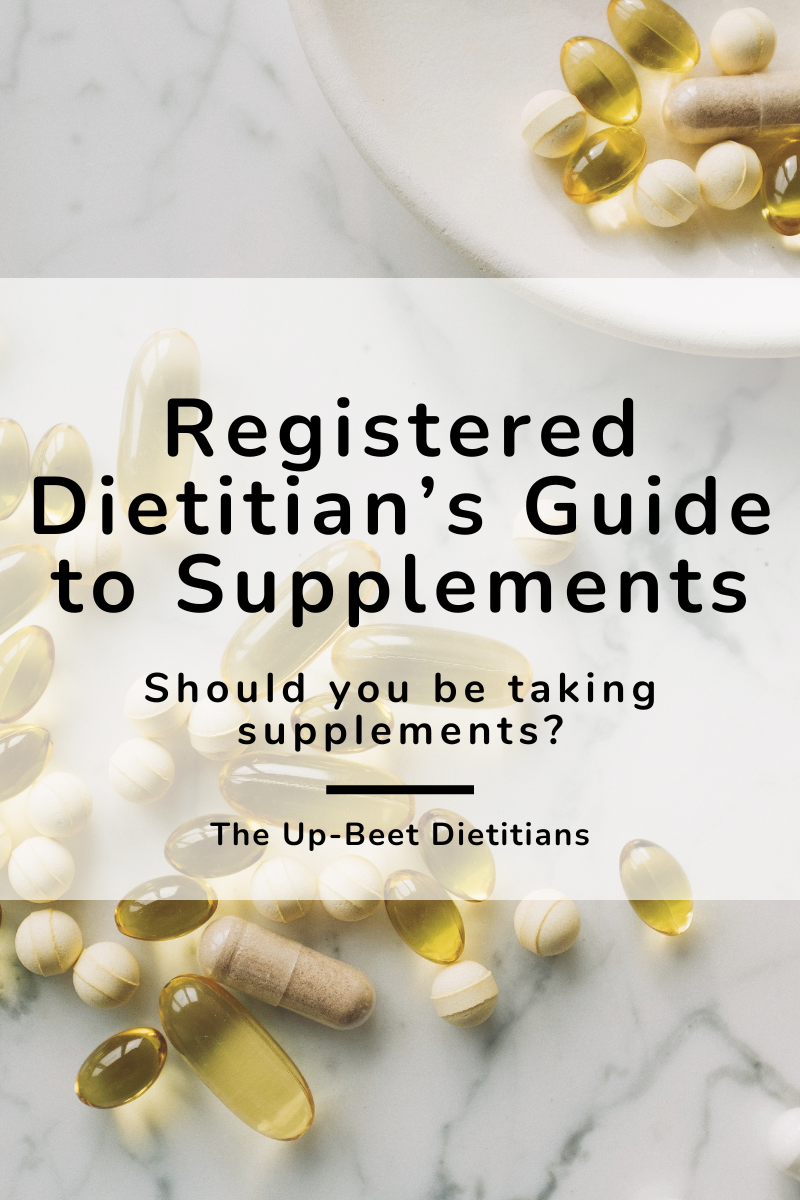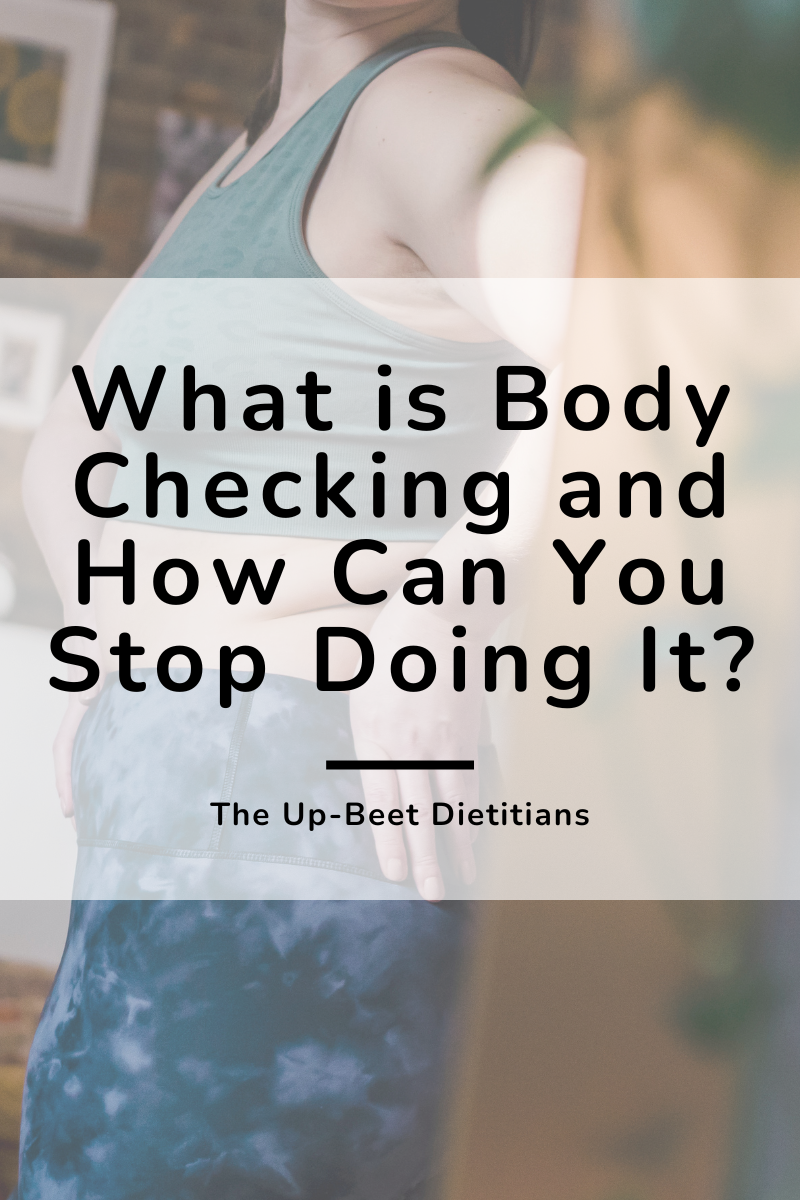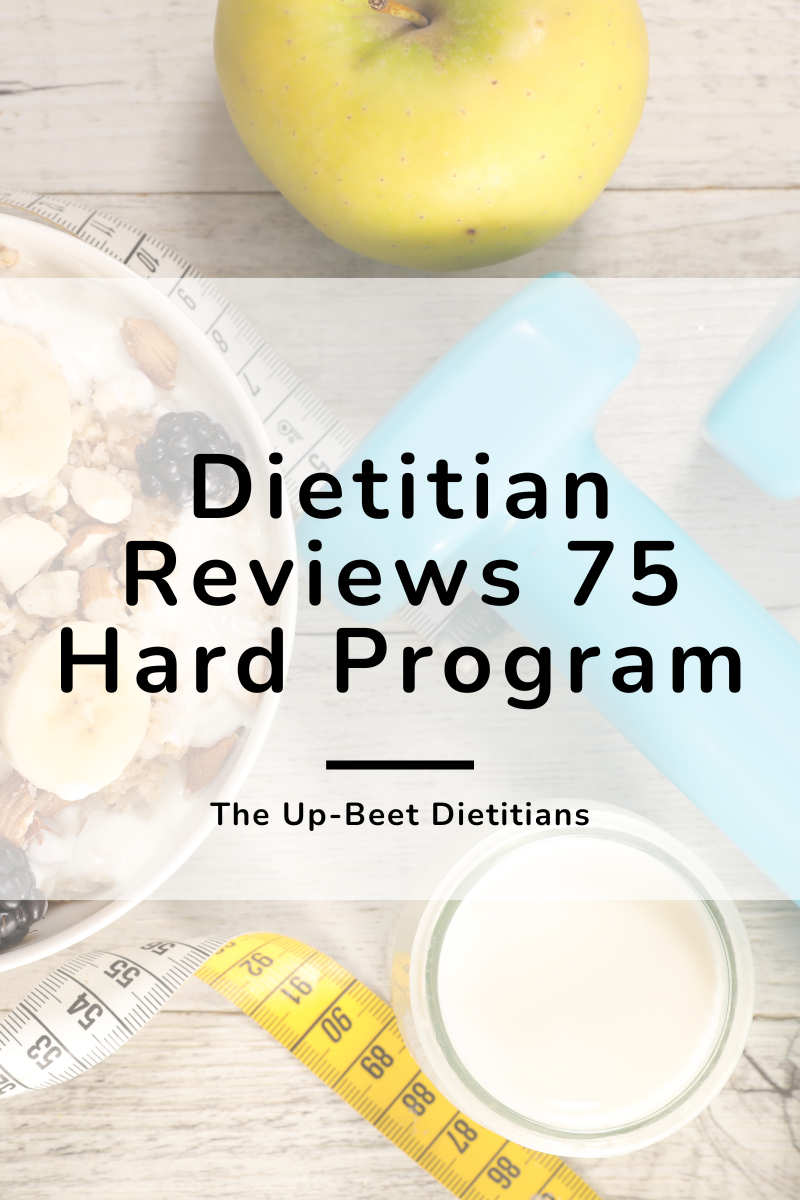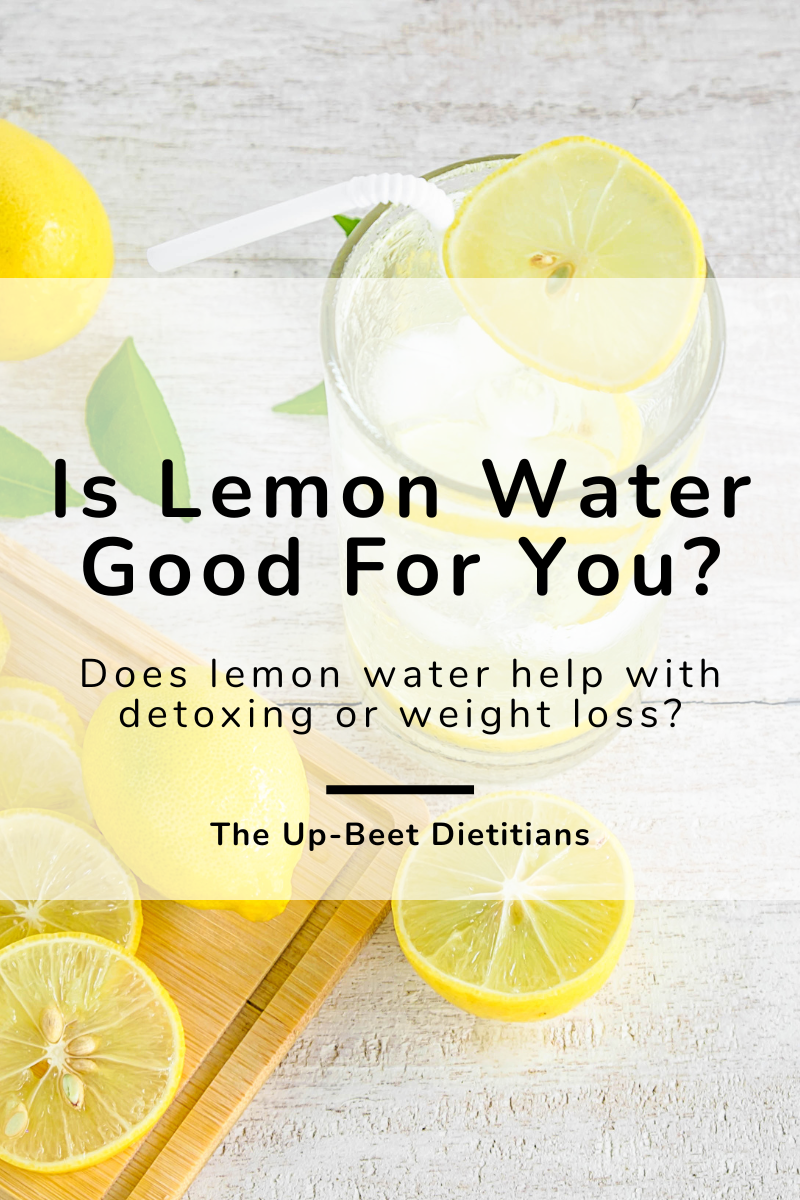Registered Dietitian’s Guide to Supplements
Written by: Hannah Thompson, RDN, LD, CPT
Should you be taking any supplements? Are they helpful or harmful?
The supplement industry is a multi-billion dollar industry that is projected to continue to grow. From vitamins to protein powders to over-the-counter-weight loss pills, supplements can be found in most of our medicine cabinets. With so much information (and misinformation) regarding supplements, it may feel like you need to take a handful of pills every day to be healthy.
I take a food-first approach to supplements, meaning that I encourage trying to obtain nutrient needs through food before adding in a supplement. But when used correctly, there can be many benefits to taking supplements. At the same time, if taken without proper guidance, supplements may even do more than good.
This blog post is for informational purposes only. If you have questions about your unique supplement needs, speak with a healthcare provider that can assess your diet along with your pertinent lab values.
What are supplements?
Supplements are manufactured products made to supplement your diet, meaning they are not a replacement for a balanced diet. Supplements can be in the form of tablet, capsule, softgel, powder, or liquid.
There are many different categories of supplements, the most popular being vitamin and mineral supplements. Vitamins and minerals are micronutrients required by our body for various functions. These supplements can be used to treat a deficiency or to help an individual meet a specific nutrient need if they are unable to do so through food alone due to increased needs or dietary restrictions. Other popular supplement categories include herbal supplements, weight loss supplements, protein powders, and sports nutrition supplements such as BCAAs, creatine, and pre-workout powders.
Benefits of supplements
If used properly, supplements can have many benefits including:
Treat or prevent health conditions - Supplements may be helpful to treat the symptoms of certain health conditions or to prevent health conditions from occurring. For example, folic acid supplements are standard for pregnant women and women who plan to become pregnant to reduce the risk of spina bifida.
Treat nutrient deficiencies - While many individuals can meet their nutrient needs through a balanced diet, there are certain scenarios where deficiencies may occur. For example, supplementation of vitamin B12 is often helpful for those following a vegetarian or vegan diet.
Potential risks of supplements
Many individuals will decide to take a supplement simply because they saw a targeted ad or a friend recommended it. This comes with risk! At the very least, this can be unnecessary money out of your pocket. Other risks include:
Drug interactions - Some supplements may interfere with pharmaceuticals. For example, Vitamin K can reduce the effectiveness of blood thinners like Coumadin. Always speak to your healthcare provider if you are taking any new supplements while also taking medication.
Overdosing - More is not always better when it comes to supplementation. You will not always just “pee out” excess. Some micronutrients, namely fat soluble vitamins (vitamins A, D, E, and K), can build up in the body. There are also many supplements that provide very large doses of particular nutrients, which may be dangerous in some cases.
Misleading labels and marketing - Supplements are regulated in a post-market fashion, meaning that no regulatory body approves the accuracy of label or safety before they are sold to consumers. Dietary supplements are not well-regulated and manufacturers do not have to prove that they are either safe or effective before they hit the shelves. The FDA does maintain a list of potentially harmful supplements and the worst offenders are usually weight loss aids.
Third party testing
Because supplements are not required to undergo safety or accuracy testing before being sold to consumers, it is wise to look for a third-party testing label on supplements that you purchase. Third party testing is completed by an organization that’s not the supplement company itself. It is conducted to evaluate quality, provide an audit of the manufacturing process, and conduct evaluation of labeling to ensure that they are accurate and compliant with regulations. Such third party organizations include Consumer Lab, NSF International, and US Pharmacopeial Convention (USP). Websites such as labdoor.com are also helpful for consumers to self-assess supplement safety and quality.
Should you be taking a supplement?
In typical dietitian fashion, the answer is that it depends! While there may be benefits for some, there may also be potential risks. If you feel that you may have a nutrient of concern, ask yourself (or a dietitian!) how you can increase your intake of that nutrient with food before turning to a supplement.
Bottom line
It will be best to obtain your nutrient needs through foods, but supplements may be helpful if you are unable to do so. Speak with a healthcare professional to better assess your nutrient needs and be sure to choose supplements that have undergone third party testing.
Want to learn more about Intuitive Eating and how to start your food freedom journey? Join our course to learn how!





